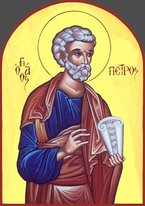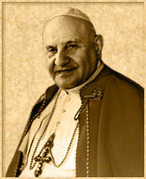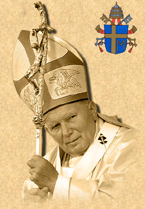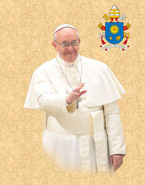|
On 7 November 2014, an opinion article was published in the Malay Mail Online. The article entitled "Why I Left the Faith" was submitted by Miss Boo Su-Lyn. Read it here. Below is my reply to the said article. Dear Su-Lyn, I read with immense interest your article of opinion dated 7 November 2014 in the Malay Mail Online. I do not pretend to know or understand the deeper intricacies of your life and faith experience, but being a man who believes in God, I am compelled to offer what I hope to be a thoughtful and respectful response to that which you have expressed in your article. Inasmuch as I deeply empathise with your loss of your father at such a tender age, it seems to me that it consequently resulted in a Christian faith that was based on a social construct rather than one of desire for inner and substantial union with the Divine. Understandably, the Christian community – especially your pastor, perhaps – was a constant source of moral and emotional support for you as you struggled with your sense of loss. As you have rightly put it, the activities of worship and leading of a small group of Christian believers simply boiled down to a “sense of belonging”. I respectfully and gently submit that, if this is all your faith was based on, then it lacked the most fundamental and intrinsic component of the Christian faith, that is, the belief in a Being Who is transcendent and larger than your immediate situation or need. I am not saying that this Being is indifferent to human predicaments, for we believe Him to be good and compassionate and merciful. However, faith and belief in this Being must be rendered on His terms, not ours, and it certainly cannot be contingent upon our perceived need of Him. A faith that is constructed upon the moral support we receive from the related faith community, therefore, is anything but “tightly constructed”. In a way, you are right: God is “unnecessary”. We can truly worship Him for Who He is only when we understand that our fidelity towards Him must be offered apart from His relevance in our lives. He is not to be employed as some concierge at a hotel lobby awaiting our bidding. His existence is a priori, independent of human experience and belief. Our denial of Him does not diminish Him any more than our worship of Him renders Him larger or greater than He already is. While it is understandable why a term like "dogmatic" is perceived to be vulgar in a contemporary world that exalts independent and open-ended intellectual enquiry, religion is dogmatic because it deals with the higher science of not just that which is seen, but also that which is unseen. Such matters are one of revelation to which we begin by submitting our feeble intellect and will, subsequently devoting our scholarly labours to strive for a greater recognition and understanding of that which has been revealed. The faith community’s role is merely to recognise that which has been revealed, not to dictate what is true or false. But the Church acknowledges that science has its role in explaining the material world. We would happily agree with you that science and faith are not and should not be opposed to each other. In the same breath, we would also contend that science has severe limitations in its attempts to explain the world in the absence of a Divine Creator. I do not wish to go into greater specificities by dwelling on theories such as the Uncaused Cause or the Argument by Design because you have not done so in your article. Hence, I will not go beyond mentioning that even science itself, in wanting to be true to its inherent nature, is predicated upon a resignation that there are things it cannot explain. Where then do you turn to for an explanation on issues of life and existence that empiricism can never adequately explain? We all turn to the lower sciences to explain phenomena in life that can be observed, measured and predicted, but such activity offers no explanations to some equally, if not more, crucial and unobservable dimensions of life. The science of which you have spoken in your article is but a lower and paler derivation of its ultimate master: revelation. In your article, you had also mentioned a plethora of other issues which were purportedly held by the community of Christian believers to which you previously belonged and for which your faith community failed to offer satisfactory answers. These issues include those of gender inequality, sexual purity and abstinence, and theories of creation, among others. Each one of these is, in itself, a vast topic of discussion that deserves dedicated treatment beyond the scope of my reply to your article. At a personal level, I wish you had not given up on your search prematurely, just because your faith community failed to offer you a satisfactory answer, thereby naturally concluding that there was no answer to these real and honest concerns. The failure of a faith community to provide a logically satisfactory response does not naturally indicate the absence of a satisfactory response. Like you, I can attest to the reality that having faith in God has not always been the most convenient stance to take in the course of my life. But the value of faith and humanity’s reaching out for the Divine does not lie in the expediency of doing so. If anything, this revealed faith has been a source of much inconvenience, and at times, rather senseless suffering for many today and those of the generations past. But we continue to cling on to it tenaciously because we believe that even apart from our allegiance and fidelity, God is still God. After all, faith that can be crafted for the fulfilment of our own purposes and needs is ultimately little more than an expression of narcissistic self-belief and can logically only lead to a senseless form of nihilism. If our material existence is to make any sense at all, we must make ourselves necessarily relevant to the unnecessary God, and not vice versa. Rev. Deacon Dr Sherman Kuek OFS Deacon of the Catholic Church
7 Comments
stella fernandez
12/11/2014 05:35:40 pm
I love the one liner , that reads if our material existenceis to make any sense at all, we must make ourselves necessarily revelant to the unnecessary God. Hit the nail , deacon .
Reply
meejawa
21/11/2014 05:29:07 am
Since God is all powerful and all knowing, and nothing happens without his consent, has Adam really sinned since God already knew Adam would sin and God himself wanted Adam to pro-create (hence Adam must be cast-out from Garden of Eden)? God knew the snake would tempt Eve to tempt Adam, so wasn't these his plan all along? If so, why would we say Adam and Even have sinned?
Reply
Grobber
8/8/2016 07:06:55 pm
Who says god consents to everything?
Reply
Mr Meek
21/11/2014 04:58:01 pm
I can see that you are very knowledgeable Rev. Deacon Dr Sherman. You can write very well. But it would be of such great help if you could use more simplified words for all level of people to understand. I believe a good writer and message deliver is a person who is able to make all level of people understand that message. Keep up the good work Reverend.
Reply
John
22/11/2014 09:20:51 am
We have freewill but it's within our limited human capacity.
Reply
meejawa
24/11/2014 09:24:25 am
The analogy with parents is very amusing, as if that is the standard reply whenever I asked this question to any Christians.
Reply
Leroy
1/3/2015 11:04:06 pm
just my opinion. is free will truly that important? your rebuttals are solely based on us striving for the ultimate goal; free will. is it really that important? Your comment will be posted after it is approved.
Leave a Reply. |
Categories
All
Archives
December 2021
|
|
FOLLOW DEACON SHERMAN DEACON'S FORMATION FB GROUP
© 2021 Sherman Kuek. All rights reserved.
|

 RSS Feed
RSS Feed












